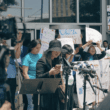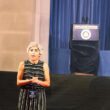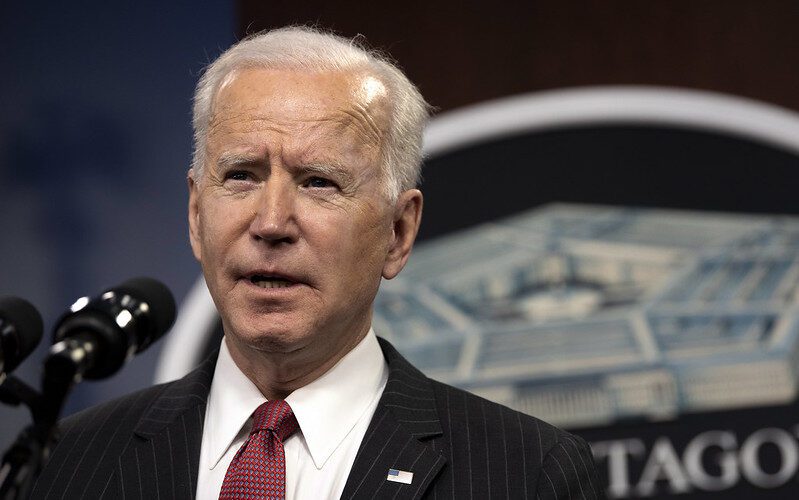Good morning, and welcome to The Yappie’s AAPI politics briefing — your guide to the policy news and activism affecting Asian Americans + Pacific Islanders. Send tips and feedback to [email protected] and support our work by making a donation.
— Edited by Shawna Chen
The Biden Era
U.S. AND MARSHALL ISLANDS RENEW COFA AGREEMENTS: The U.S. has signed a $2.3 billion agreement to provide economic assistance to the Marshall Islands over the next 20 years. Following agreements reached by the Biden administration with the Federated States of Micronesia and Palau, the deal is the last of three made under the Compacts of Free Association (COFA), Reuters’ David Brunnstrom and Michael Martina report.
- Much of the negotiations centered on Washington’s responsibility to better address the legacy of nuclear weapons testing in the Marshall Islands in the 1940s and 1950s, including health issues and land loss due to radioactive waste disposal—which has forced increasing swaths of the population to flee their homes and migrate to the U.S. The agreement is still subject to approval from Congress and the parliament of the Marshall Islands.
- Remember: Foreign policy experts say that continuing to support and defend COFA states is strategically important for the U.S. to prove itself a reliable ally and limit Chinese influence in the Indo-Pacific. The new agreement will also allow citizens of the three nations to access federal benefits in America.
SENATORS QUESTION SU’S PLACE IN PRESIDENTIAL LINE OF SUCCESSION: Sens. John Kennedy (R-Louisiana) and Katie Britt (R-Alabama) are leading 28 colleagues in grilling President Joe Biden over what they call an “illegal” and “covert” attempt to add Acting Secretary of Labor Julie Su to the presidential line of succession.
- The Biden administration has retained Su in an acting role since then-Labor Secretary Marty Walsh exited in March. AAPI lawmakers and advocacy groups had lobbied for Biden to nominate her as Walsh’s replacement, but Republican opposition in the Senate has kept her nomination in limbo despite the president’s support.
- Though she failed to secure enough votes for confirmation, White House officials later determined that Su could legally serve as acting secretary indefinitely, Axios’ Hans Nichols and Stef W. Kight note.
- What’s happening now: “We write today to express grave concerns with your Administration’s apparent belief that Acting Secretary of Labor Julie Su is eligible to assume the office of President of the United States,” the senators wrote last week in a letter to Biden that cited her inclusion on the White House website’s list of Cabinet members in order of succession.
- “It is unimaginable to think that this Administration believes someone who has neither been duly elected nor confirmed by the Senate to the position of Secretary of Labor could be President of the United States,” the letter states. “Suggesting that Ms. Su is eligible to be in the presidential line of succession is antithetical to our system of governance and the bedrock principles on which our Republic rest.”
- The White House has not publicly responded to the letter. Biden administration officials have previously said Su’s tenure has no expiration date—even in an acting capacity—under Section 552 of Title 29 of the U.S. Code.
On The Hill


REDUCING TAXES ON TAIWAN: A new bill co-sponsored by Rep. Judy Chu (D-California) aims to relieve double taxation on investments between Taiwan and the United States. The bipartisan and bicameral legislation was formally introduced on Oct. 19.
- Chu has been calling for such a bill since May, when she joined Reps. Suzan DelBene (D-Washington), Adrian Smith (R-Nebraska), and Nicole Malliotakis (R-New York) to introduce a resolution that emphasized the urgency of boosting Taiwan’s economic resiliency amid threats from the Chinese government.
- “Across the country, including in the San Gabriel Valley, our economic ties with Taiwan are strong, and I am working to make them even stronger. I am hopeful this consensus bill will … ultimately further deepen economic collaboration and investment between our two democracies,” Chu said in a statement.
HEALTH CARE FOR KOREAN AMERICAN ALLY VETERANS: An act that would give Koreans who were U.S. allies in Vietnam access to Veterans Affairs health care is headed to Biden’s desk after unanimously clearing the Senate on Oct. 20.
- The legislation, introduced by Rep. Mark Takano (D-California) earlier this year, aims to address health care gaps for Koreans who served alongside American personnel in the Vietnam War through the armed forces of the Republic of Korea.
- “I am thrilled by the overwhelming bipartisan support across both chambers for Korean American Vietnam veterans who fought alongside American forces to get the VA healthcare that they deserve,” Takano, a ranking member on the House Committee on Veterans’ Affairs, said in a statement.
MOURNING WADEA AL-FAYOUME: AAPI lawmakers are mourning the death of six-year-old Wadea Al-Fayoume, who was stabbed 26 times in his family’s Illinois home in what authorities are calling an anti-Muslim hate crime. Many across the nation are grieving the loss of a young Palestinian American life and the larger implications around surges in Islamophobia alongside antisemitism.
- “No family should have to endure such tragedy. We must stand strongly against hate violence targeting Muslim communities and heed the lessons we have learned about the targeting of Muslim, Middle Eastern, and Arab communities after September 11,” Chu said in a statement on behalf of the Congressional Asian Pacific American Caucus, which she chairs.
- “That means appropriately addressing the surge in hatred and vitriol we are already witnessing against Muslims, Palestinians, and Arab Americans.”
Campaign Watch


INFLATION, ECONOMIC INEQUALITY BEAT OUT CRIME AS TOP VOTER CONCERN: A new Pew survey finds that 41% of Asian American registered voters believe inflation is the “most important issue in their community,” followed by economic inequality (16%), violent crime (11%), and racism (9%).
- Yes, but: Democratic and U.S.-born voters were more than twice as likely as Republicans and foreign-born voters, respectively, to say that economic inequality is the most important issue.
- Of note: 97% of Asian American registered voters say policy positions are more important than the race or ethnicity of a candidate when casting their ballots—a statistic that could influence the success of GOP Indian Americans Nikki Haley and Vivek Ramaswamy’s presidential campaigns.
- At the same time, 68% believe it is very or extremely important to have a national leader advocating for the community.
- Don’t forget: Asian Americans are among the fastest-growing racial groups in the U.S. From 2000 to 2021, the number of Asian American adults in the country more than doubled from 8.7 million to 17.8 million, according to census data. Large increases in AAPI voter turnout played roles in deciding the 2020 presidential election and 2022 Georgia senate election.
INDIAN AMERICANS’ MIXED FEELINGS ON THE POLITICAL LANDSCAPE: Indian Americans are now the largest Asian-alone subgroup, but with the group still leaning heavily Democratic, many are finding it hard to celebrate Ramaswamy and Haley’s prominence—especially as Ramaswamy continues to push extremist messaging.
- Closing the door: Ramaswamy has advocated for dismantling the U.S. Department of Education and other federal resources, leading some to worry that his platform “would destroy the same institutions that had been crucial to Indian American success and upward mobility,” New York Times’ Jazmine Ulloa writes.
- On the rise: Since then-Louisiana Gov. Bobby Jindal became the first Indian American to declare a campaign for president in 2016, at least one Indian American has run in every presidential election. Haley and Ramaswamy’s entries for 2024 mark the first time there have been two Indian Americans running in the same cycle. Their campaigns, of course, follow Kamala Harris’ historic election as the first Indian American senator and later vice president.
- Yes, but: 70% of Indian American voters said they voted for Biden compared to 28% who reported voting for Donald Trump, per the AAPI Civic Engagement Fund’s 2020 election eve survey. Meanwhile, all five Indian Americans in Congress are Democrats.
🥰 Enjoying The Yappie? Make a donation, forward this briefing to a friend. or subscribe here. You can also follow us on Twitter, Instagram, and Facebook.
The Yappie is your must-read briefing on AAPI power, politics, and influence, fiscally sponsored by the Asian American Journalists Association. Make a donation, subscribe, and follow us on Twitter (@theyappie). Send tips and feedback to [email protected].









